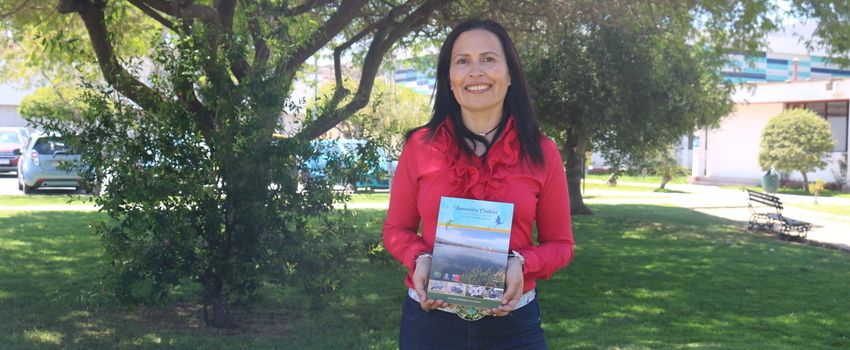- News
Academic participates in the publication of a book on the preservation and care of coastal wetlands in the Coquimbo Region

Summarizing, updating and integrating all the knowledge available within the natural and human systems of the coastal wetlands found in our region, was the main objective of the publication of the book “Coastal Wetlands of the Coquimbo Region: Biodiversity, Vulnerability and Conservation ”.
In the Coquimbo Region, wetlands are located on the coastal plains within an arid landscape and climate, therefore, it is not surprising that they constitute centers of high biodiversity, and that since historical times they have been poles of attraction for anthropogenic activities. . This is also why these ecosystems have been exposed to use, intervention and overuse of the services they provide.
It is under this context that the book, “Coastal Wetlands of the Coquimbo Region: Biodiversity, Vulnerability and Conservation”, presents a learning opportunity documented through 2-year field work. In this way, the academic, Mg. Marcela Robles Iriarte, from the School of Pedagogy of History and Geography of the Faculty of Social, Business and Legal Sciences of the University of La Serena, participated in the publication of the book, which included hard work made up of a multidisciplinary team of academics from the ULS and different universities in the country.
“This book seeks to summarize, update and also integrate all the available knowledge that we find within the natural and human systems of the coastal wetlands found in the Coquimbo Region. We are completely convinced that it is a great contribution to knowledge for undergraduate, graduate and school students. Likewise, I think it is very relevant today to talk about wetlands and the importance they have, and above all about their conservation and care,” said the academic and editor of the book, Mg. Marcela Robles.
The publication will be available in digital format for the entire community starting in March. “It is a work that has not only been thought about in the academic field, but also in the general community as a whole so that they can have access to information,” explained the ULS academic.
The execution of the project and its due publication consolidated in this book, occurred thanks to Project NAC-I-032-2015 Ecology of the coastal wetlands of Coquimbo: Biodiversity, Vulnerability and Conservation. And, it also had financing from the Hacienda Huentelauquén, the Department of Social Sciences of the Faculty of Social, Business and Legal Sciences of the ULS and the Sustainability and Natural Systems of Central Chile project of the Directorate of Research and Development of the ULS. from La Serena.
Written by Paula Godoy, ULS journalist
